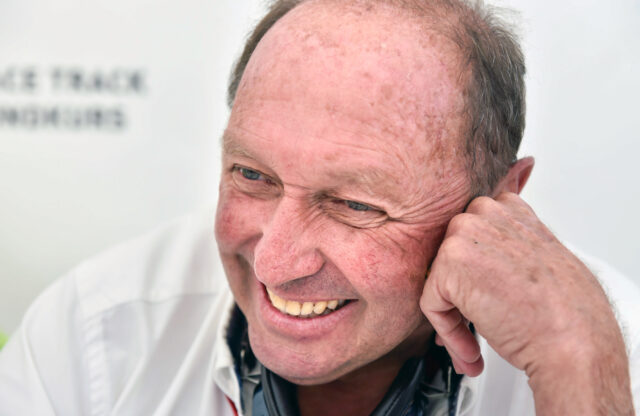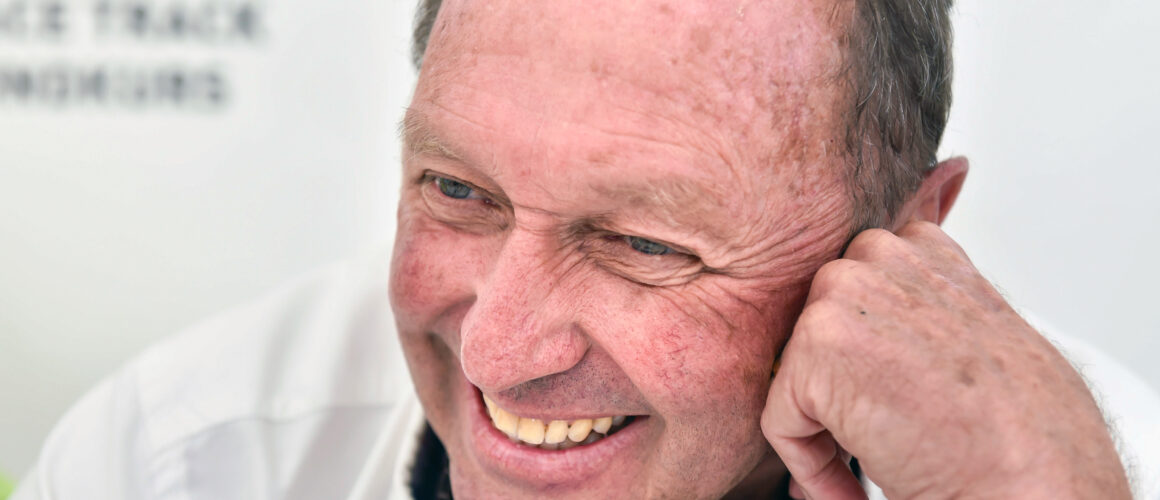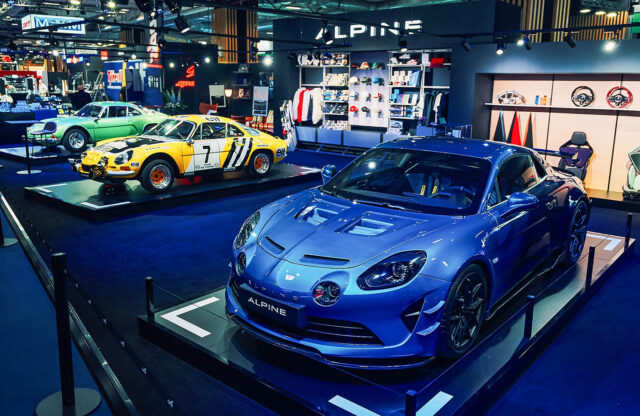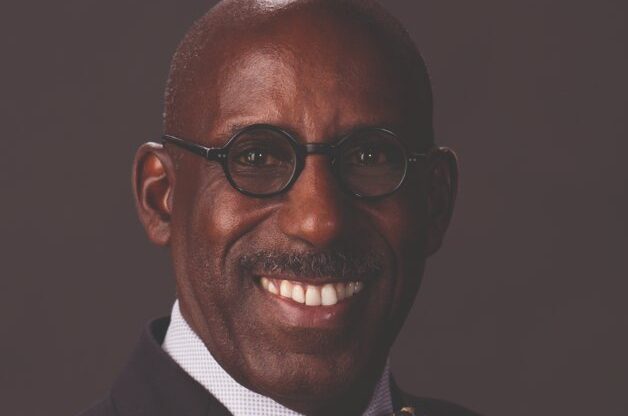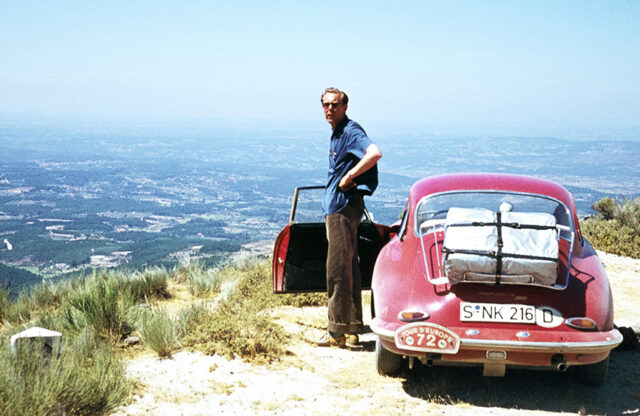The great Jochen Mass sadly passed away on May 4, 2025. He was 78 years old. The charismatic German driver forged an incredible career in Formula 1 and Sports Cars, competing against the likes of Gilles Villeneuve, Jacky Ickx and Niki Lauda. After competing in his final Le Mans 24 Hours in 1995, Jochen became a Historic racing regular, making appearances at events such as the Goodwood Revival and Grand Prix de Monaco Historique.
Known for his talent, versatility and reliability, Jochen was one of Germany’s greatest drivers and he will be sorely missed by the entire motor sport community. He is survived by his wife Bettina and his four children. Below is what Jochen told journalist Paul Chudecki for a feature in the December 2019 issue of Octane magazine.
In his prime, Jochen Mass was among Germany’s most renowned and adaptable racing drivers before he became one of the most beloved figures on the Historic racing scene. Always approachable, with a genial smile and gentle demeanour, the softly spoken German was a regular at classic motor sport events worldwide.
Yet until 1967, becoming a professional driver hadn’t even occurred to him. Raised in Bavaria and educated at boarding school, Jochen initially planned to become a mechanic after three years in the merchant navy – which he left disillusioned, having aspired to sail yachts. The turning point came when his girlfriend, a marshal at a Mannheim Sports Touring Club event, invited him to a hillclimb at Eberbacher. The spectacle gripped him instantly. “I saw it spontaneously,” Jochen, recalled with a grin. “The sounds, smells, and sights – I thought, ‘That’s what I want to do!’”
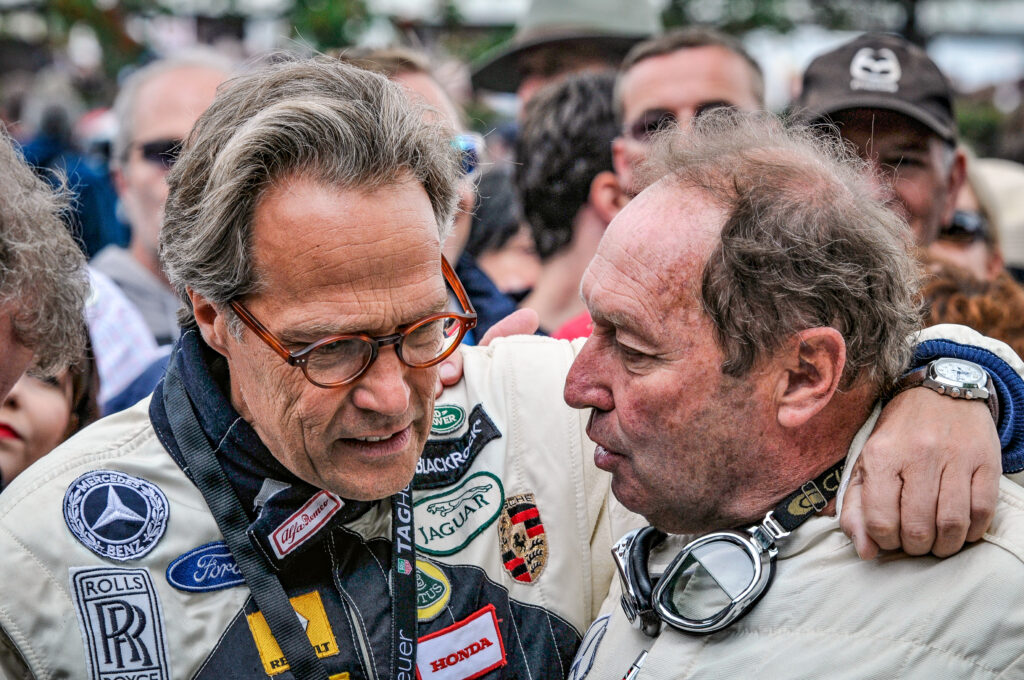
Lacking funds for a car, he took a job as a trainee mechanic at Helmut Hahn’s Alfa Romeo dealership in Mannheim. Hahn also ran a Giulia GTA race car. “Otherwise, I’d have had to join the army,” Jochen quipped. Before long, he was racing a Giulia Super Ti, finishing second at Eberbacher behind the GTA, with further podiums soon after. “I never once thought I might fail,” he laughed. “I knew I had the talent. I just didn’t question it.” He competed in a few circuit races with the GTA – a works car belonging to the garage – until an accident in early 1969 wrote it off. “That’s when you realise you need support,” he reflected. “Someone who believes in you – that’s crucial.”
His early performances earned him a test with Ford at Zandvoort. “Thirty drivers were there – including F1 names like Tim Schenken, Jean-Pierre Beltoise, and others such as Dieter Glemser and Helmut Marko,” Jochen recalled. “Four of us were within four-tenths. I got signed on the spot.” Asked what he wanted to race, he replied: “Whatever you’ve got.” Ford offered the European Hill Climb Championship – and Jochen jumped at the chance.
The contract also marked a huge increase in income – from DM150 a month. “When they asked what I wanted to earn, I had no clue,” he laughed. “Their offer nearly knocked me off my chair!” And just like that, he was a factory driver – in 1970.

He began with a Capri 2300GT in EHCC events before graduating in 1971 to Touring Cars under Jochen Neerpasch’s leadership. He clinched the German Saloon Car Championship that year, initially in the 2300GT, then the Escort RS1600, and finally the Capri RS2600. In the latter, he won the 1972 Spa 24 Hours, Silverstone TT, and Jarama Four Hours alongside teammates such as Hans-Joachim Stuck and Gérard Larrousse, taking the European Touring Car title.
Next came a flurry of sportscar events in the Chevron B21 and appearances in Formula Vee. “There was time to do everything – and I loved it,” Jochen said. “The focus was always there. It all clicked.”
With a reputation growing fast, he made his mark in 1972’s Formula Vee, then leapt to British F3 and European F2 – the former in a Brabham BT35-Ford, where a win and strong finishes got him noticed; the latter in a works March 722-Ford, where he led his first race before clutch failure and won his second.
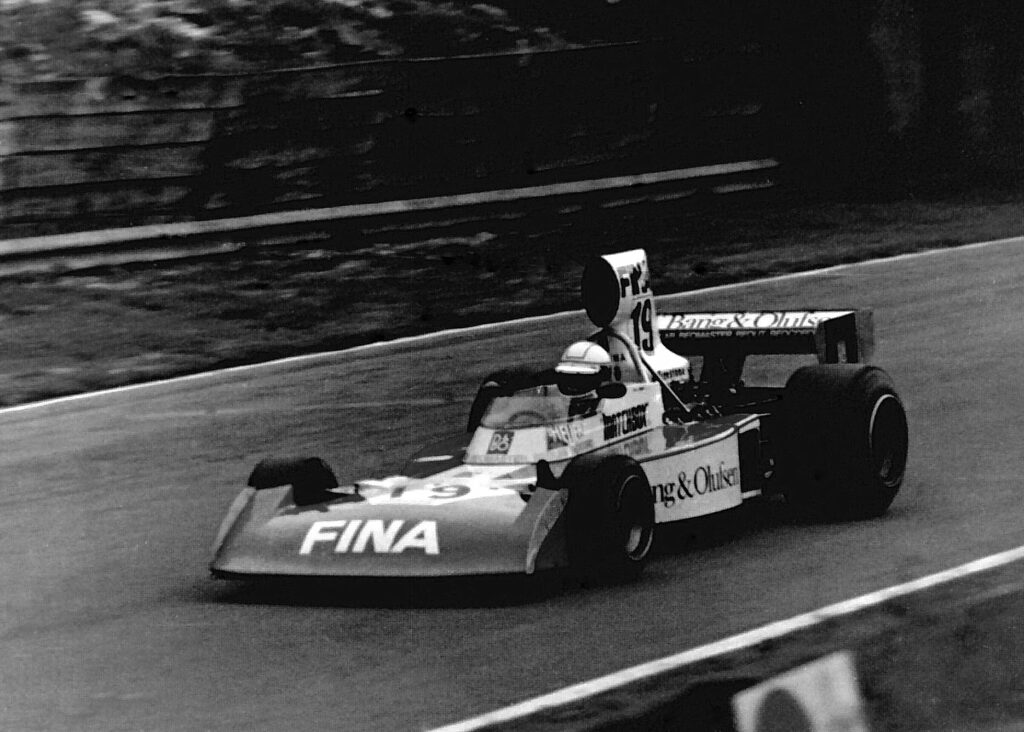
In 1973, he moved to a Surtees TS15-Ford in F2, finishing runner-up to Jarier. Midway through the year, he debuted in Formula 1 with the Surtees TS14A at the British GP – though he only completed his first F1 race at Hockenheim, finishing seventh. He also ended the year as F2 vice-champion. A full-time F1 drive in the unreliable TS16 made 1974 frustrating, but Jochen ended the season in a McLaren M23-Cosworth.
He scored seventh at the US GP, and in 1975, joined McLaren full-time alongside new World Champion Emerson Fittipaldi. That year, Jochen took his sole Grand Prix win – the chaotic, crash-filled Spanish GP at Montjuïc. “It was the most unworthy win,” he admitted – no German would win a GP again until Schumacher at Spa in 1992. He stayed at McLaren in 1976 with James Hunt, who won that year’s title.
Porsche then came calling, launching a long and fruitful relationship. His debut in the 935 with Jacky Ickx netted a win at Mugello. Together they triumphed in nine of 11 races, including three of the seven World Championship for Makes rounds, securing Porsche the title. “The cars were fantastic,” Jochen smiled. “We were unbeatable – except at Le Mans.”
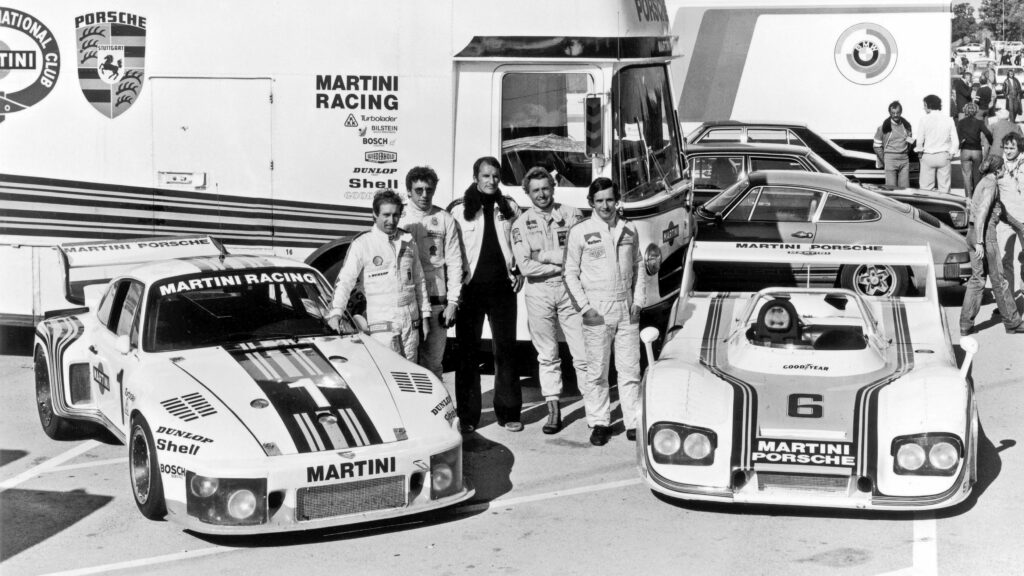
That race was different. “I told the organisers their guardrails were rubbish – not fixed properly. They just said ‘C’est impossible.’ So I refused to do Le Mans. It was in my contract.” That’s why Ickx raced with Derek Bell. “Had I driven with Jacky, we’d have won five times too. But I stood by my principles.”
Jochen’s first Le Mans, in 1972, left a sour taste. “I hated every second. In the prototypes, you were constantly in someone’s mirror. I thought, ‘I hope this thing blows up’ – and it did!”
In 1977, McLaren replaced him with Patrick Tambay, and Jochen moved to ATS. While testing in 1978, he suffered a violent crash at Silverstone due to suspension failure at 180mph – shattering bones and puncturing a lung. “I was lucky to survive,” he noted. Astonishingly, he was back testing with Arrows within two months. He raced for them through 1980, scoring a strong second in Spain. A leg injury while sailing saw him miss a potential 1981 Williams seat. In 1982, he joined RAM with a March 821 – his F1 swansong was near.
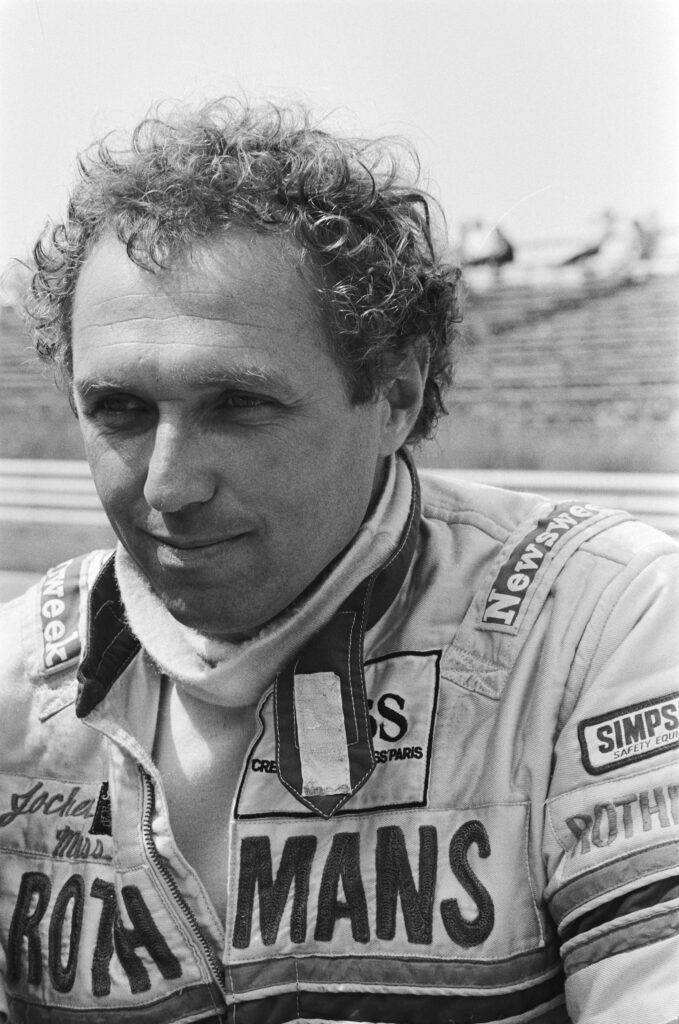
That year, during Belgian GP qualifying, Gilles Villeneuve perished after colliding with Jochen’s car. Shaken, Jochen decided he couldn’t put his family through any more. It marked the end of a 114-race Grand Prix career.
Yet he did return to Le Mans – now for Porsche – finishing 12th in a 936 with Vern Schuppan and Hurley Haywood, and winning the Kyalami Nine Hours. When Group C arrived, he got his hands on the dominant 956. “It was a revelation,” he recalled. “Faster than the 936 – the best car I’d ever driven.”
Jochen scored numerous wins with Porsche and later Sauber-Mercedes. “I had the most points in endurance racing – 800 or so,” he said. “Others like Jacky and Derek were great too, but the points system didn’t exist in the same way back then.”

He notched a record 19 wins with Ickx, but Le Mans glory eluded him – until 1989, with Sauber-Mercedes. He, Stanley Dickens and Manuel Reuter won the 24 Hours after Jochen drove 11 of them himself. “We won Le Mans, no points, no money, no nothing; a shit trophy,’ Jochen said, dismissing the trophy’s diminutive proportions. The FIA/ACO feud meant no points or prize money and caused Le Mans to be removed from that year’s World Sports-Prototype Championship.
Runner-up again in the World Sports-Prototype Championship in 1990, Jochen narrowly missed out after a puncture cost his teammate Wendlinger the win in Canada. In 1991, while leading Le Mans by four laps, his car overheated due to a failed bracket – a simple fix, botched by hesitation. “It was a million-euro mistake,” Jochen said.
He stepped away from Sauber and top-level racing in 1991 with ten overall victories and 19 endurance championship wins – more than anyone else. But he still had it. In 1994, Frank Williams asked him to test at Le Castellet. He outpaced David Coulthard by half a second. “Not bad for someone who hadn’t driven F1 in 12 years,” he chuckled.
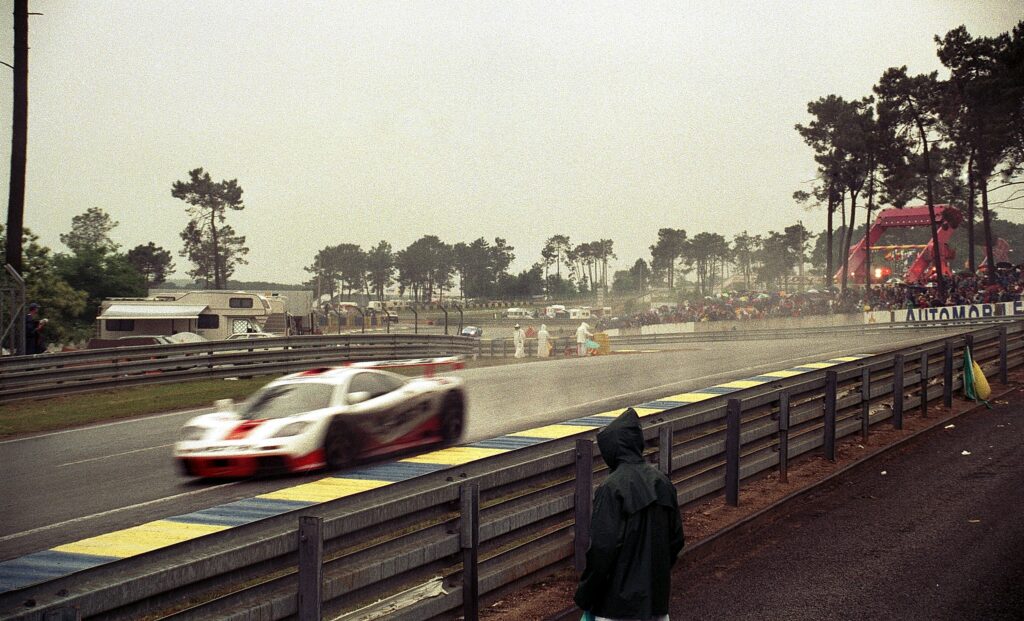
His final Le Mans came in 1995 with the McLaren F1 GTR – the car retired after nine hours.
Widely regarded as one of sportscar racing’s finest, Jochen settled in southern France with wife Bettina in 1999 and took to Historic racing.
